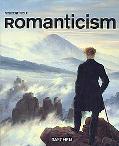No one who reads romances would find it difficult to imagine a society differing beyond recognition from our current arrangement. They could easily imagine a society, for example, that values clarity as an essential quality in great art, and views imagination as irrational. Or a society that has no familiarity of classical Gotham and no exposure to any of the genres that gothic subsequently cultivated. Such was the time that British philosopher Edmund Burke lived in when he embarked on writing his Philosophical Enquiry into the Origin of our Ideas of the Sublime and Beautiful, published by R. and J. Dodsley, in London in 1757.
Burke was not even eighteen years old when he published his treatise on aesthetics that attracted the attention of prominent Continental thinkers such as Denis Diderot and Immanuel Kant. Thirty years later, he was asked by Sir Joshua Reynolds and Dr. Laurence to expand these early ideas, to which he responded that he was no longer fit for abstract speculation.
In his book, Burke attacked the rationalist and the notion that clarity is a requirement in art. He suggested that the obscurity formed through our imagination is the property of the most powerfully moving art, and he argued that ‘It is our ignorance of things that causes all our admiration and chiefly excites our passions.’ The passions he was referring to were the ones he considered to be at the root of human activity – curiosity, pleasure and pain. Pleasure involves the passions of sympathy (produces interest), imitation (produces habits) and ambition (produces change), while pain corresponds to self-preservation and suggests the complex idea of the sublime. Beauty, on the other hand, comprised a very different set of simple ideas, which have their origins in pleasure.
The first edition of the book is believed to be limited to 500 copies, a few copies of which are currently offered for sale for an average of £ 2,500. The small octavo usually comes bound in half calf, with a smooth spine ruled across in gilt, red morocco label and marbled endpapers.
The rare book that is credited with the launch of British Romanticism and established as a founding document of Gothic aesthetics is also surprisingly, relatively cheap. The primary reasons for this are not specific to the condition or other attributes of a single particular copy, but apply to the book in general. These are broader spectrum factors such as scarcity and desirability, which affect supply on one end and demand on the other. An important document from the Eighteenth century that was released in a limited edition of 500 copies is without argument scarce. What can possibly be the reason then, behind the lack of desirability for this book? Here is a list of possible factors:
- Appeals to institutional buying, which has slowed significantly during recent slower economic times.
- Lack of high spot appeal with a prolonged slow but steady rate of appreciation in value.
- Burke has generally been viewed as the philosophical founder of modern conservatism as well as a representative of classical liberalism, a contradiction that diminishes historical importance.
- Lacks backing of follow-up work and ideas to solidify historical importance.
- Lacks fine binding appeal with small octavo.
There is no reason to believe that interest will continue to fall short in the years ahead. It is more likely, however, that the same slow appreciation will continue its steady course. Two years following the release of Burke’s Philosophical Enquiry, Voltaire wrote another celebrated philosophical conte, Candide, ou l’optimisme, traduit de l’allemand de Mr. le Docteaur Ralph. The book had eighteen editions in 1759 alone and the first edition is commanding well over £ 60,000. Come to think of it book valuations resemble horse racing!

{ 1 comment… read it below or add one }
I have always felt that Burke’s Philosophical Enquiry was underrated in the book world! But I feel that way about a number of books, particularly in science, economics, and philosophy–that their importance and impact are far greater than the current value given by the rare book market.
{ 1 trackback }